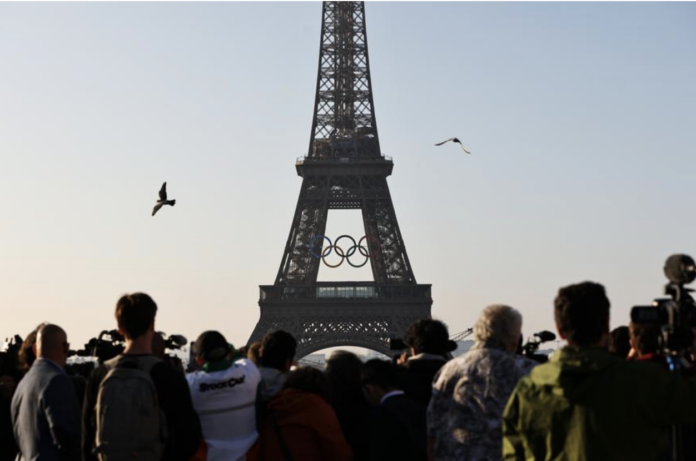PARIS, June 26 – With one month to go until the opening ceremony, Paris is in the final stages of its preparations for the 2024 Summer Olympics. Here is a look at how the French capital is shaping up to stage the world’s largest sporting event for the third time in its history.
Over the coming days and weeks, the Paris 2024 organizing committee will step up its transition from preparation to operation mode. Major facilities and venues that will open their doors include the Main Press Center, the International Broadcast Center and the Olympic Village, which will accommodate over 14,000 residents, comprising athletes, coaches, support staff and officials.
The Paris 2024 Main Operations Center, which has been functional since mid-April, was due to start its full Games-time operations on June 26, while finishing touches are also being made to other venues.
The construction of temporary facilities at key Parisian sites like the Concorde and Trocadero public squares, the Invalides monument and the Eiffel Tower is nearing completion.
These works include provisional grandstands to accommodate 37,000 spectators for events such as basketball, skateboarding, BMX, and breakdancing. Authorities have also implemented traffic detours designed to make large swaths of the city pedestrian friendly.
On the competition front, more than 80 percent of the qualifying schedule has been completed, representing more than 8,000 athletes. The remaining event slots will be confirmed by the end of June, and national or regional Olympic committees have until July 8 to register their athletes. Paris 2024 will mark the first time that athlete participation at the Olympics will feature full gender parity.
More than eight million tickets have been sold so far for Paris 2024, already ensuring that it will be one of the best-attended Games ever.
The organizing committee has reported particularly high demand for athletics, swimming, basketball, football and rugby sevens. Other popular events include volleyball, handball, beach volleyball, field hockey, tennis and water polo.
Fan enthusiasm has already been evident in the buildup to the Games, with over 2.5 million people attending the Olympic torch relay in France, including 150,000 in Marseille. Another six million people have followed the relay on television.
The general public can also participate in the mega-event through the Paris 2024 Cultural Olympiad, a multidisciplinary artistic and cultural program that features over 2,000 projects, 80 percent of which offer free entry.
Additionally, more than 900 activities for fans have been set up across France, providing opportunities to watch the Games, engage in cultural and sports activities, explore cities and enjoy the local cuisine.
Amid concerns over potential threats such as drone attacks, the French government has halved the spectator capacity for the Olympic opening ceremony.
Up to 300,000 people will be able to watch the ceremony from stands located on the banks of the River Seine, down from an initial plan to accommodate 600,000.
The curtain-raising event will feature teams parading in boats along a 6km (3.8 mile) stretch of the Seine through central Paris.
However, French President Emmanuel Macron has indicated that the ceremony could be relocated to an enclosed stadium if security risks escalate.
To ensure safety, Paris police chief Laurent Nunez has said that around 30,000 police officers and 18,000 soldiers from the armed forces will be mobilized daily throughout the Games.
Organizers have given assurances that the security measures will guarantee the safety of participants and spectators.
Around 10,500 athletes from over 200 countries and regions will converge on the French capital to compete in 329 events over 17 days. Meanwhile, more than 15 million tourists are expected to visit Paris during the event, while four billion viewers are forecast to tune in to television.
A 62,000-strong security force will be deployed for the opening ceremony, comprising police and military personnel.
Medals will be decided across 32 disciplines, including four newcomers: surfing (to be staged in Tahiti), sport climbing, breaking, and skateboarding. Some of these sports have previously been included at the Olympics in exhibition categories.
Ticket sales are surging toward nine million and are expected to reach 10 million by the Games’ end, organizers have said.
It is estimated that 30,000 volunteers will participate in providing general information, helping spectators at venues, supporting athletes, and assisting in the 6,000 planned doping tests.
Meanwhile, some 13 million meals and snacks will be served to fans, athletes, officials and support staff during the Games.
















